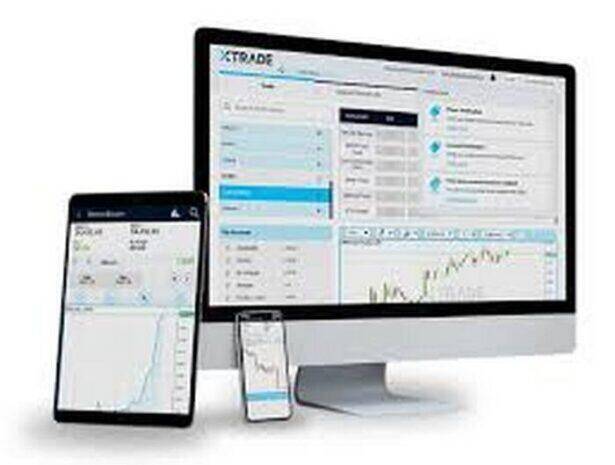Contents:

The GitHub platform also supports the pull request feature and helps the user get the platform’s project. In the GitLab platform, there is no such feature of the pull request, and instead of this merge request feature is supported in the GitLab platform. GitHub, on the other hand, does not offer such detailed documentation for the most common git repositories.
With Git, developers can create branches of their code, which allows them to experiment with different versions of the same code without affecting the original version. Git also allows developers to create tags that can be used to mark specific versions of code. All of these features make it easier for developers to track changes made to their code and collaborate with other developers. When it comes to Github Vs. Gitlab, you can find numerous similarities and differences between these two version control systems. Both the platforms are web-based repositories for developers to help them with source code management. GitHub is an open-source code Repository service for coders and developers.
The acquisition has stirred up controversy in the open https://traderoom.info/ community. A lot of people are worried that Github will lose its open source roots so many are looking at alternatives like Gitlab. GitLab is defined by its top notch features — issue tracker, built-in CI/CD, deployment, monitoring. All of these features enable you to go from development to cloud without having to use other 3rd party tools. Another area in which this is also frequently applied is time tracking. Both platforms keep track of coding versions, changes, etc., but it doesn’t present sufficient capabilities from a management standpoint.

Get started with a free trial of our Application Hosting or Database Hosting. GitHub Actions automations make CI/CD possible without third-party tools, but you won’t have the same oversight level. The main branch is always ready to deploy, ensuring that you can quickly reinstate the status quo if something goes wrong. Developers on either platform can easily fork the project to start making their changes and experimenting with them.
Difference Between GitLab and GitHub
According to the GitHub website, 73+ million developers use GitHub to build and maintain their software. An important thing to know about Git is that it’s a distributed version control system. Every Git directory on every computer has a whole repository with complete history and tracking abilities for your projects. Regardless of network access, developers can access complete repositories independently. As we’ve seen above, there are several differences between these two popular software development platforms, from enterprise-level capabilities to integrations & more. Each platform excels in different areas, making them suitable for different kinds of teams & projects alike.
Github doesn’t allow the developers to implement the process of open-source culture within an organization. On the other hand, Gitlab allows you to promote the inner sourcing of your internal repositories. GitLab has been designed from the ground up to accommodate modern distributed software development workflows and to integrate seamlessly into existing DevOps practices. You can review the complete list of GitLab features to learn more about each feature set within the DevOps lifecycle. GitLab prides itself on being a complete DevOps platform and organizes its features based on the stages of the DevOps lifecycle. Ultimately, when deciding between GitHub and GitLab, you should consider factors such as cost-effectiveness & ease of use before choosing what’s right for you.
Microsoft and GitHub
Clearly, GitHub Actions is more affordable compared to GitLab CI—and by a huge margin. The former’s plans are reasonably priced, so it should be your tool of choice if you’re on a tight budget. There’s also an add-on plan that allows you to purchase additional CI/CD minutes or storage.

Let’s dive into the features GitHub provides to better understand what makes it popular. Meanwhile, GitLab’s built-in issue tracker has similar features, but visually it’s much simpler than its counterpart. GitLab actually began as an alternative to GitHub, and since then, it has expanded, offering more and more plans and features. It aims to be reliable and comprehensive, while the older repository seeks to emphasize performance and teamwork. GitHub and GitLab are both Git repositories that enable developers to collaborate on, test, and improve their projects.
It offers all of Git’s DVCS SCM and has some additional features. This includes collaboration functionality like project management, support ticket management, and bug tracking. With GitHub, developers can share their repositories, access other developers’ repositories, and store remote copies of repositories to serve as backups. GitLab enables organizations to optimize their software development lifecycle. The areas of focus include project planning, source code management, continuous integration, application security testing, and packaging artifacts. GitHub and GitLab are two of the most popular repository hosting and management tools in the market.
What’s the Difference Between GitHub and GitLab? — Comparisons
GitHub users often work with third-party CI programs such as Jenkins. Linus Torvalds introduced Git in 2005 for the development of the Linux kernel. Git is free, open-source software for version control, which helps developers track and manage changes to their code. Version control systems are essential in enabling programmers to collaborate and revert back to previous versions of code.
They aim for the entire software development, deployment, and DevOps market. There are plenty more project management features available in both GitLab and GitHub, and they’re equally good. The GitLab vs. GitHub debate has to settle for a tie in terms of project management features. Unfortunately, GitHub doesn’t come with its IDE unless you use a third-party integration.
How to check the technology a website is built with – TheServerSide.com
How to check the technology a website is built with.
Posted: Thu, 13 Apr 2023 18:22:30 GMT [source]
Before going into the differences between the two, let’s go over their differences. Git repositories are cloud-based services that store code and allow multiple users to collaborate on projects. They provide version control and management of changes to files, as well as access to a public or private repository of code. GitHub, on the other hand, is a web-based hosting service for Git repositories.
Pros and Cons of GitHub and GitLab
From a security perspective, too, GitLab and GitHub are quite similar. From the standpoint of community and support, too, GitLab and GitHub are similar. Users who need help can find community-based support from online forums.
Github is also the first choice of larger teams that depend on crystal clear team communication. That’s because Github delivers fantastic collaboration tools in order to make your team communication efficient so that you guys can develop faster and produce quality code. Users of either platform can easily solve that by integrating with a powerful time tracker such as Everhour. Everhour is a timekeeping tool that will function seamlessly as a GitLab time tracking integration or as one for GitHub.
You Can Now Track Supply Chain Attacks on GitHub – SDxCentral
You Can Now Track Supply Chain Attacks on GitHub.
Posted: Thu, 30 Mar 2023 07:00:00 GMT [source]
It enables organizations to collaborate across their organization, ship secure code faster and drive business results. GitHub offers more storage, more CI/CD minutes per month, and lets you work with the unlimited number of contributors. Auto DevOps provides a predefined CI/CD configuration that helps you automatically detect, build, test, deploy, and monitor applications.
In addition to being good at merging and branching, Git is efficient because, developers can commit changes without connecting to a central server. Git’s popularity comes from its simplicity, efficiency, and low barrier of entry compared to other version control systems like Subversion or Perforce. Bitbucket, GitHub, and GitLab, is the support of the open-source repository in the platform. Among all three, GitLab is the only platform that supports an open-source repository. The GitLab platform provides the functionality to the user to see the complete code on their official website.
We’ll cover this difference between gitlab and github in more detail later, as we pinpoint where the services differ. No, the two online services are offered by completely different companies. GitLab Inc. is a privately owned, fully remote company with 1,303 staff members. Only with Git do you have the freedom to work on various versions at once. It’s a must-have for any team that wants to do feature-based development.
With BitBucket added to the list, it only gets tough to decide between them. Read this article till the end to gain a clarity on each of the tool and choose wisely. If you have a knack of using GitLab, we recommend you download and install GitLab Enterprise Edition. The Enterprise Edition is available for free and is packed with all of the features available in the Community Edition, without the need to register or obtain a license. There are a huge number of stores on GitHub, and every storehouse has its own devices to assist you with host and release code.
- But before, you have to install the application on a machine that’s separate from the one that hosts the GitLab instance for security and performance reasons.
- ● GitHub utilizes devoted instruments to distinguish and analyse weaknesses to the code that different devices will in general miss.
- Gitlab has a more streamlined deployment function with its in-built service integration.
- While someusers did flee GitHub for GitLabandAtlassian BitBucketat the time, Microsoft taking over was never truly a huge factor for most.
Besides, you can use the grep linter the look for exclusive terms contained in the source code. Good article, just one more note for GitLab CI. Maybe, GitLab offers CI functionality but it has lots of bugs and very limited feature set compared to other 3rd party tools. However, both occasions I needed to migrate to GitLab CI , it was a real challenge to achive a similar functionality as we had before as GitLab CI is very far from a mature solution. For commercial projects, GitHub offers a significantly cheaper enterprise plan.
GitHub offers integrations for 374 free apps in its marketplace, with many paid options to boot. The platform provides a variety of management by which users can streamline their collaborative workflow for completing the software development lifecycle. It also allows users to import the repository from Google Code, Bitbucket, etc.
GitHub and GitLab are both version control systems that allow developers to share and collaborate on code. In GitHub, you can also categorize issues, pull requests, and notes into specific projects. Beyond that, you can set and track milestones and gauge productivity with various charts and reports.
While CI/CD minutes cost $10 per 1000 minutes, you’ll have to pay $60 per 10 GB storage and 20 GB transfer/month, renewable annually. If you have more complex requirements and a budget to match, you can opt for other plans by paying for extra minutes. GitHub Actions’ free plan gives you 2000 minutes every month, but the storage is restricted to just 500 MB.
If the user wants to use this functionality, a third-party application can be used.The integrated CI functionality is provided in the GitLab platform. Both platforms provide a variety of developer tools, in addition to the project management and security services mentioned above. GitLab’s tooling is more extensive in some respects, which may be an advantage for developers who want to stick with just one platform for all of their needs. The free version of Gitlab offers numerous free repositories as compared to the free version of Github. Github platform is more restrictive and allows only three developers to work on a private repository. It allows fewer user permissions, and role-based permissions are only possible with a paid enterprise version subscription.

With Gitlab, you can create milestones to keep track of problems and their solutions. It also aids in setting up due dates for different tasks and helps you accomplish a target in a specific time. With Gitlab, you have the authority to decide who gets to access the repository and who does not. Also, it gives you an option to restrict the people’s access as per their roles and positions based in the company.
How to Get Started with GitHub – ITPro Today
How to Get Started with GitHub.
Posted: Sat, 25 Mar 2023 07:00:00 GMT [source]
This helps them avoid the mistakes that can be made when working with unversioned code. ● GitHub uses dedicated tools to identify and analyze vulnerabilities to the code that other tools tend to miss. Development teams everywhere work together to secure the software supply chain, from start to finish. GitHub is where project managers and developers meet up to organize, track, and update their work so that tasks are transparent in nature and right on time. It will integrate with your GitHub or GitLab workflows, allowing managers to track, get time tracking reports and manage workflows more effectively. GitLab presents a built-in solution for deployment, utilizing Kubernetes or K8s to automate this process.
